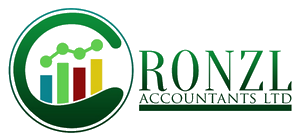Expenses are a crucial part of reducing the income tax and national insurance paid in the UK.
Every business is different, so the expenditure claimed could be different.
There are three rules that could help to ensure that you are claiming the right expenses.
Why is claiming the right expenses important?
The consequence of not claiming expenditure or tax relief within the time frame is paying too much tax.
Likewise, if the taxpayer claims disallowable expenses they face the risk of tax investigation in the nearest future.
This could lead to certainly paying unplanned taxes, and tax penalties with interest in the future.
How to claim the right expenses?
In order to ensure that appropriate expenditure is claimed.
There are three rules that could help to ensure certainly that the right expenses are claimed:
-
Wholly and exclusively for business purposes:
For an expense to be tax-deductible, it has to be wholly and exclusively for business purposes.
If the expense has an element of private use, it should be apportioned and only the business part should be deducted.
Therefore, when an expense cannot be safely apportioned because of the private element, it would be disallowed.
2. Revenue expenditure, not capital expenditure:
Revenue expense is one that does not have a lasting feature.
If the expense would need to be replaced within a year certainly it most likely would be revenue expenditure.
Likewise, expenses that relate to capital expenditure are also disallowed.
If it’s could last between 1-2 years, the business owner would need to access this themselves as it can be subjective based on the purpose.
However, if it could be used for more than 2years it most likely would not be revenue.
Also, expenses that relate to capital expenditure are also disallowed. E.g. depreciation, amortisation or cost of acquiring fixed assets like buying a property.

-
Expenses within the accounting period.
The accounting period is the time covered by the return you are trying to submit.
Therefore the expenditure that you are trying to claim the relief for must be within the period of the return under assessment.
There are certain times when there is an exception to this rule.

- Example of Business cost:
- Professional Fees
- Personal Indemnity Insurance
- Bank/credit card charges
- Interest payment on rental properties
- Agency Costs
- Accountancy Costs
- Secretary/Admin Assistant
Business Usage:
- Mobile Usage
- Printing
- Stationary
- Fax
- PC Software
- Hotel/Rental fees
- Subsistence Allowance
- Travel to and from Agency/Locum Work:
- Car Hire
- Car Lease Payment (apportioned if the car belongs to the business owner)
- Maintenance
- Petrol
- Travel
Conclusion
Finally, one of the major determinants for tax paid is expenses deducted hence claiming the right one is very important.
So the advice our Northampton accountants have is to ensure the right amount of expenses is claimed
For more advice on the capital allowance, kindly contact us.

